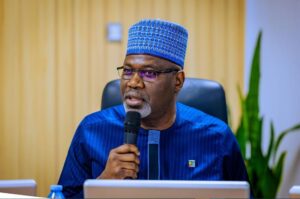
A health economist, Dr. Abigail Banji, says as Ebola is now detected in Uganda, the world is reminded yet again of the need for Africa to network together to identify and stop infectious diseases.
Banji said on Friday, September 23, 2022, in Abuja, that the task facing African leaders now, even as they continued to deal with COVID-19, was to work together to ensure the continent was better prepared for the next outbreak.
“The African continent should learn from COVID-19, stock up, prepare and keep watch as a community.
“African leaders cannot make the same mistakes again. They must do better.
“And they must work together to strengthen their health systems to better prevent, prepare for and respond to the next pandemic,” she called.
She said the COVID-19 pandemic had brought into sharp focus the limitations of the country’s efforts in preparing for diseases like Ebola and the need for a more ambitious and sustained approach to epidemic preparedness.
Banji said that there was a need for more financing, reform of national governance for health-related crises, and fresh thinking around national public goods.
The expert said the country required strong and resilient health systems, in particular primary health care, to facilitate the detection of disease outbreaks, provide essential care, and support the deployment of vaccines and other medical countermeasures.
She said that the nation required surveillance systems and laboratory capacity to detect both human and zoonotic disease outbreaks.
According to her, mechanisms are needed for coordination across sectors for prevention and preparedness.
Banji said that preparedness required legal frameworks and regulatory instruments to support outbreak prevention, and the deployment of countermeasures.
She stressed that there was a need for well-functioning supply chains as well as adequate stockpiles of essential goods and equipment.
“We need to look into lessons from the COVID-19 pandemic so that we will not have to make the same mistakes again. Do we have adequate stockpiles of essential goods and equipment,” she questioned.
The expert said that from what was happening across the African continent, pathogens didn’t respect borders, there were also important cross-country dimensions of preparedness, with regional, and sub-regional institutions playing key roles.
She stressed that in areas such as regulatory harmonization, standards for reporting and information sharing on disease outbreaks, sharing of key public health assets such as high complexity laboratories, and pooled procurement were necessary.
“The continent should look no further, from what played out during the heat of COVID-19, even countries with stronger preparedness were profoundly challenged by the pandemic.
“This highlighted vulnerabilities associated with the breakdown of global supply chains, and the role that a lack of trust, cohesion and mechanisms for intra-government coordination have played in undermining response,” she said.
Banji stressed that a One Health approach that recognised the linkages between human and animal health, and the environment, the Regional Disease Surveillance Systems Enhancement (REDISSE) programme was developed in the wake of the Ebola crisis.
This had helped to strengthen national and regional capacity for disease surveillance and epidemic preparedness across 16 countries in West and Central Africa including Nigeria.
“This needs to be strengthened,” she said.
She warned that the risk of another pandemic could be high on the continent.
“Our 21st century way of life increases this risk. Climate change, intensive farming and international travel enable diseases to spread across the world faster than ever before.
“African problems need African solutions.
“While action is needed at local, national and regional levels to improve preparedness, there are a set of activities best coordinated on the continent,” she said.
The World Health Organisation (WHO), said Uganda declared an outbreak of Ebola after a case of the relatively rare Sudan strain was confirmed in the country.
The WHO’s Africa office said in a statement the case was confirmed after testing a sample from a 24-year-old man in the country’s Mubende District.
Ugandan health authorities investigated six suspicious deaths in the district this month.
The country’s Ministry of Health said the 24-year-old patient died after displaying symptoms.
Uganda last reported an outbreak of Ebola Sudan in 2012, the WHO said.
At least 17 people were killed from the 24 cases identified in that outbreak, according to the Center for Disease Control and Prevention, which contributed to containing the virus in the east African country at the time.
Uganda has experienced four Ebola outbreaks, according to the WHO, with the most deadly witnessed in 2000 which left over 200 people dead.
Uganda borders the Democratic Republic of the Congo which is experiencing an Ebola resurgence following outbreaks this year.
Uganda’s last outbreak was in 2019 when it confirmed the Zaire Ebola strain, which led to the death of nine years old Congolese girl near the border with the DRC.
According to the WHO, vaccination has been approved against the Zaire strain but inoculation against the Sudan strain hasn’t been tested.






